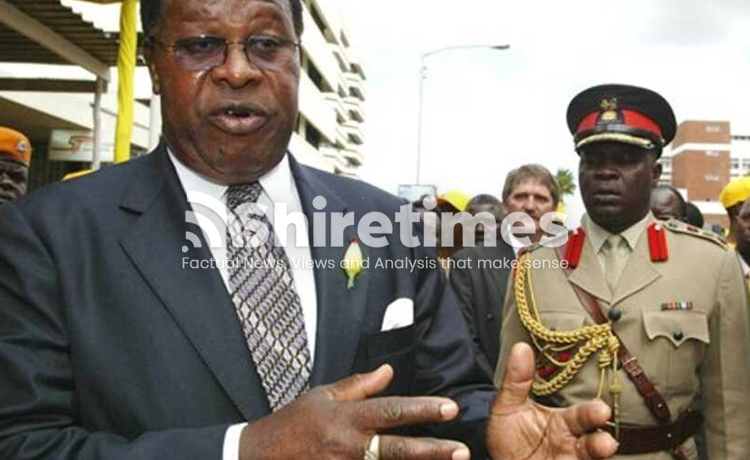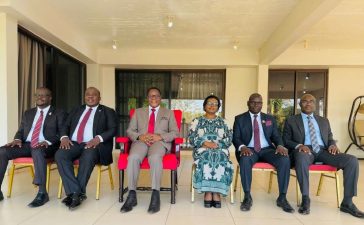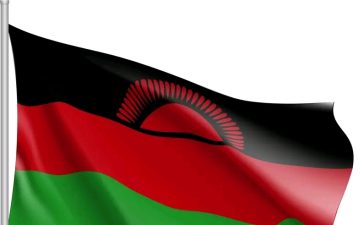It is said that little drops make an ocean, what is also true is that little outflow can drain an ocean. National Transport Master Plan (NTMP) reports that railway transport stands to benefit Malawi from annual transport cost savings of up to $45 million. Over 30 years ago, Dr. Kamuzu Banda recognized the importance of rail transport system and embarked on an agenda to roll out railway network across the country. Particularly important were rail networks to the sea which were projected to reduce import costs.
The bad news at the prospects of saving $45 Million a year is that, Malawi has been losing that much for over 20 years due to abandonment. The money lost to this date is approximately $900 Million (MK731 Billion). Sadly, that was all for sheer political reasons. Bakili Muluzi drenched himself in so much undue hatred towards Kamuzu Banda at the expense of national development. He orchestrated a narrative that once there is a change of government, the incumbent terminates continuity of projected rollout by the former government. This far, MK731 Billion has be lost.
The Malawi National Optic Fibre Backbone Project whose implementation kicked off in April 2017, was rolled out as a response to the Malawi Growth and Development Strategy (MDGS) III with an intention to offer faster and affordable internet. The project is being implemented by Huawei at a cost of $23 Million. Further to that, Malawi received US$72.4 million loan from the World Bank through the International Development Association to establish the digital foundations needed to connect to the global digital economy. The total cost therefore accrues to $98.4 Million.
In equivalence, Malawi has incurred approximately MK79 Billion. As of June 2021, President Lazarus Chakwera launched the second phase of the Fibre Backbone project to ensure that Malawi must, for once, be liberated from high internet costs whose connectivity is even unreliable. Data must fall! Data must fall!
The importance of ICT as an enabler for development cannot be overemphasized. ICT is identified as pivotal in accelerating growth of other sectors and acts as an enabler for poverty reduction and wealth creation. It forms the backbone of business activity, productivity, trade, and social advancement. In the 1990s’ particularly in Malawi, for a small business owner to find market they had to travel long distances on rugged roads which eventually fetched meagre dividends that they would rather just trade within their vicinity. Transport was a problem. There was no better way to sell merchandize but to display goods in a local market. Opportunities to sell elsewhere were unfathomable. Only corporate institutions could afford to place an advert in the newspaper or radio to reach to the larger masses. It was hard!
In the twenty first century that we are in, a small business owner can now attain the impact of putting an advert in the newspaper or radio without necessarily using the radio and newspaper. As a mater of fact, those approaches are becoming obsolete or at least relatively archaic. All that one can do as of late is put up a post on a Facebook page or Whatsapp group and their merchandize will be sold in no time. Technology has made business cheaper and easier.
Imagine, therefore, how many more technological marketing tools could be used by a local Malawian business owner if internet becomes super-fast and super cheap? Now to think that some political party zealots were ridiculing Lazarus Chakwera for continuing with this project shows how the chalice that dripped from Muluzi’s middle finger has poisoned the mentality of some Malawians. Abandoning such a project because it was started by a different administration would cost Malawi unimaginable losses.
Presidents have come and gone following suit the footsteps of Muluzi, each abandoning projects in the past administration. It is mind-boggling how that Malawi has looked forward to a President who shall put national agenda above politics and when such a president, as in present case Lazarus Chakwera, comes, some people are at the forefront castigating him for doing the expected thing.
President Chakwera has changed the status quo. He seeks to condemn the chalice that was smeared on Malawi’s forehead by Muluzi. He has rolled out a new chapter of continuing all the economically sensible projects from all the past administrations. This time not marred by substandard work nor stalled by looting, the national projects will be pursued and completed with a topping of class that answers to progress and modern aspirations.













